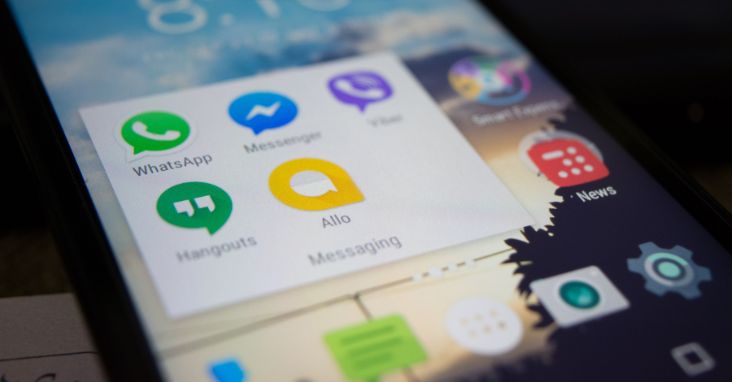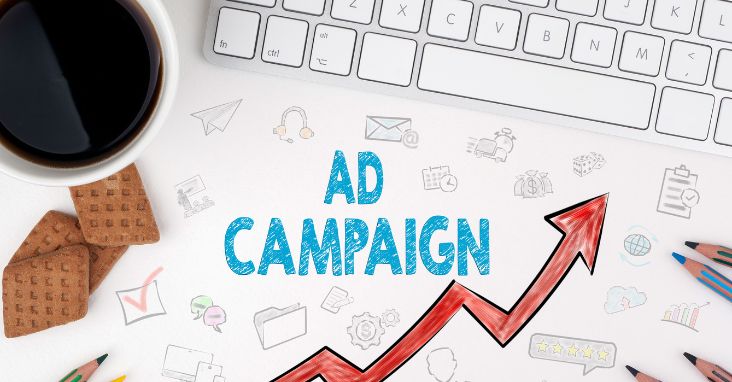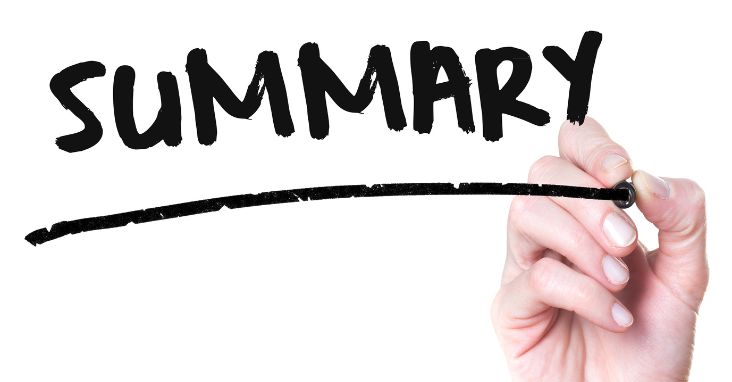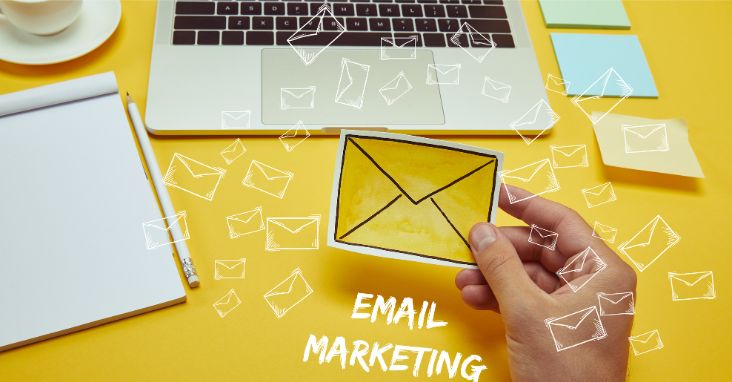Hey there, fellow marketer! You’ve probably had those moments, right? You’re sipping your morning coffee, staring at your screen, and wondering why your meticulously crafted email newsletters aren’t quite getting the traction they used to. You’ve put in the work, you’ve got the creativity, but the open rates and click-through rates tell a different story. Sound familiar? Well, you’re not alone.
Our digital world is ever-evolving, and email marketing, while still a powerful tool, is no longer the all-powerful behemoth it once was. Email marketing remains the most effective way to nurture leads and boost customer loyalty but there are also other alternatives to consider. You see, the landscape of digital marketing is a bit like a game of chess. You’ve got to anticipate the moves of your opponent – in this case, the changing tastes and behaviors of your audience – and adjust your strategy accordingly.
You might be thinking, “But I’ve spent years mastering email marketing!” And that’s fantastic! The skills you’ve honed won’t go to waste. But remember, a true email support master is always ready to learn new strategies. The goal of our game isn’t just to hold the king – it’s to engage and captivate your audience in ways that resonate with them.


So, let’s take a little journey together. We’re going to explore four alternatives to email marketing that have proven to be highly effective. These aren’t just random tactics; they’re strategies that allow you to engage directly with your audience, just like you did with your email campaigns. We’ll delve into Messenger Apps, SMS Marketing, Retargeting Ads, and Web Push Notifications, showing you how they work, why they’re effective, and how you can implement them into your digital marketing strategy.
Uncover the untapped potential of alternatives to email marketing: SMS and social media campaigns, SEO and content marketing strategies, and leveraging influencers. Transform your approach, engage audiences in new ways, and enhance ROI. Stay ahead in this fast-paced digital marketing era. Adapt, evolve, and outshine your competition.
Ready to make your move? Let’s start with the first piece on our board: Messenger Apps.
Takeaway: Digital marketing is an ever-evolving landscape. Being open to new strategies and ready to adapt is key to staying ahead of the curve. Your first step into this new world: Messenger Apps. Stay tuned!


The Power of Direct Conversation: Messenger Apps
Imagine this: You’re chilling on your couch, aimlessly scrolling through Facebook, when suddenly a message pops up. It’s from your favorite brand, letting you know about their latest sale. Instantly, you’re engaged. You feel seen, heard, even special. That, my friend, is the magic of Messenger Apps.
Today, Messenger Apps like Facebook Messenger are dominating the app stores. It’s where your audience is hanging out. In fact, Facebook Messenger alone boasts over 1.3 billion users. That’s a lot of potential conversations!
Now, you might be thinking, “Sure, but will my customers actually want to talk to me?” Well, according to reports, nearly 70% of people feel more confident about a brand if they can message them directly. That’s a pretty hefty confidence boost, right?
The beauty of Messenger Apps is the direct two-way communication. Not only can you send messages to your audience, but they can respond to you as well. This fosters a level of interaction and engagement that’s hard to achieve elsewhere. It’s like customer service and marketing had a baby, and it’s a beautiful one.


Whether you’re sharing a new blog post, announcing a sale, or updating on an order status, Messenger Apps provide a convenient and personalized way for your customers to stay connected with your brand. And let’s not forget about the power of rich media messages – you know, those messages with images or videos that make your content pop!
And the cherry on top? The rise of chatbots. These handy little tools allow you to automate conversations, saving you time while offering a great, customer service support experience. It’s like email marketing automation, but even more personal and immediate.
So, ready to dive into the world of Messenger Apps? Remember, it’s about creating genuine conversations and providing value to existing customers. The sales will follow.
Takeaway: Messenger Apps offer a unique opportunity for direct, two-way communication with your audience. They provide a personal, immediate way to engage, inform, and provide customer service. Next time you’re planning a marketing campaign, consider adding Messenger Apps to your arsenal.


SMS Marketing: The Power of Instant Reach
Picture this: You’re in the middle of a hectic day, racing between meetings, barely glancing at your overflowing email inbox. Then, your phone buzzes. It’s a text message from your favorite online store, sharing a time-limited discount code. Suddenly, your day just got a little brighter. That’s the power of SMS Marketing.
In a world where our smartphones are practically glued to our hands, SMS Marketing is a direct and incredibly effective way to reach your audience. Let’s talk numbers for a moment. Did you know that the open rate for SMS messages is a whopping 98%? Compare that to the average email open rate, and you’ll see why SMS is a game-changer.
“But what about the speed?” I hear you ask. Well, hold on to your hat because most text messages are opened within 3 minutes of receiving them. Now that’s what I call instant engagement!


SMS Marketing is particularly effective for quick, urgent messages. Running a flash sale? Launching a limited-time offer? A text message can get that news in front of your audience in seconds. Sure, you don’t have the space for visual elements, and you’re limited on characters, but that’s the beauty of it. It forces you to get creative and straight to the point.
Now, I’m not saying ditch email and switch entirely to SMS. That’s not the goal here. Instead, consider incorporating SMS into your overall digital marketing strategy. It’s a powerful tool to have in your email marketing tool-box, and when used right, it can drive significant results.
Takeaway: SMS Marketing provides a direct and immediate way to engage with your audience. It’s perfect for sharing urgent or time-sensitive information. Consider how this quick, to-the-point strategy could complement your existing marketing efforts.


Revisiting the Past: Retargeting Ads
Let’s set the stage: you’re online shopping, you add a few items to your cart but get distracted and leave the site. Later, while scrolling through social media, you see an ad for those same items you were looking at earlier. Coincidence? Nope, that’s the power of Retargeting Ads.
Retargeting Ads are like that helpful shop assistant who reminds you about the shirt you liked but forgot to buy. They nudge your potential customers to complete actions they started but didn’t finish, such as making a purchase or filling out a form.
Even though marketers say they’re not a direct form of communication like SMS or email, Retargeting Ads are highly relevant and personalized. They’re based on a user’s activity on your website, which makes them incredibly effective.
How effective, you might ask? Well, let’s dive into some numbers. Dynamic retargeting ads, ones that change based on the user’s behavior, can lead to a 70% higher conversion rate compared to regular display ads. Now that’s a number you can’t ignore!
One of the major advantages of Retargeting Ads is that you’re not competing for inbox space. No spam folders, no getting lost in the sea of emails. Your ads appear on social media feeds or other websites, right where your audience is already hanging out.
So, are you ready to give Retargeting Ads a shot? They’re a brilliant way to remind your audience of what they left behind and encourage them to complete the action. After all, sometimes, we all need a little nudge to make a decision.
Takeaway: Retargeting Ads are an excellent way to remind your potential customers of what they’re missing. They’re personalized, effective, and don’t compete for inbox space. Consider incorporating Retargeting Ads into your marketing strategy to boost conversions and re-engage visitors.


Web Push Notifications: Your Digital Tap on the Shoulder
Ever been on a website and seen a little box pop up asking if you’d like to receive notifications? You click “Allow”, and suddenly, you start receiving updates from the website directly on your desktop or mobile device, even when you’re not on the website. Welcome to the world of Web Push Notifications.
Think of Web Push Notifications as the digital equivalent of a tap on the shoulder, a friendly way to grab your audience’s attention when they’re doing something else. It’s like whispering, “Hey, remember us? We’ve got something cool to share with you!”
One of the key advantages of Web Push Notifications is their ability to reach your audience instantly, without needing them to open an email or visit your website. And the best part? They can be highly personalized based on user behavior, making them a powerful tool for boosting engagement and conversions.


What About the Format?
In terms of format, Web Push Notifications are versatile. You can include text, images, and even interactive elements. Got a new blog post? Share a notification. Running a flash sale? Send an alert. They’re perfect for timely, relevant updates that your audience will appreciate.
Web Push Notifications may not replace email marketing entirely, but they’re a valuable addition to your digital marketing toolkit. They offer a unique and instant way to engage with your audience, helping you stay top-of-mind and drive action when it matters most.
Takeaway: Web Push Notifications are like a friendly tap on the shoulder, providing instant, personalized updates to your audience. They’re versatile, engaging, and a great addition to your digital marketing strategy. Consider how Web Push Notifications can complement your existing marketing efforts and help you stand out in a crowded digital landscape.


Wrapping things up
Phew! We’ve covered quite a bit of ground, haven’t we? But don’t worry, we’ve got one last takeaway for you that ties everything together.
In the rapidly evolving world of digital marketing, it’s vital to stay agile and adaptable. While the email marketing platform has been a staple for many businesses, the changing landscape has led to new, innovative alternatives that can help you connect with your audience more effectively.
We’ve explored Messenger Apps, SMS Marketing, Retargeting Ads, and Web Push Notifications as viable alternatives or complements to traditional, email marketing campaigns. Each one has its unique strengths, and the best choice depends on your specific business needs and your audience’s preferences.
Here’s your final takeaway: Remember, the goal is to meet your audience where they are, and these alternatives might just be the key to unlocking higher engagement and conversions.
Don’t be afraid to test out these alternatives! Try integrating one or more of these channels into your marketing strategy and monitor the results. See which one resonates best with your audience and brings you the most engagement. Some provide a dedicated customer success manager,to help get the best use out of the app.
And remember, no matter what platform marketing channels you use, it’s all about delivering valuable and relevant content to your audience. So keep your audience’s needs at the forefront, and you’re sure to succeed. Happy marketing!


Email Marketing Alternatives – FAQ
What are some alternatives to email marketing?
There are several alternatives to email marketing campaigns that you can consider for your digital marketing strategy. These include:
-
Messenger Apps: Messenger apps, such as Facebook Messenger, are a direct and personal way to communicate with your audience.
-
SMS Marketing: SMS or text message marketing provides a simple and fast way to reach your audience. Despite its limitations in terms of visual elements and character count, it boasts a high open rate.
-
Retargeting Ads: While not a direct form of communication like the other alternatives, retargeting ads are a highly personalized form of advertising that are based on a user’s past activity on your website.
-
Web Push Notifications: Web push notifications offer a way to instantly reach your audience with timely, personalized messages, regardless of whether they are currently on your website.
Can I use these alternatives in conjunction with email marketing?
Yes, absolutely! These alternatives are not meant to replace email marketing entirely, but rather to complement it and add more ways to engage with your audience. By using social media ads using a multi-channel approach, you can reach your audience in different ways and at different times, which can improve overall engagement and conversions.
What is SMS Marketing?
SMS Marketing is a form of marketing that involves sending promotional messages to your audience via text message. This could include sale alerts, coupon codes, or other relevant information. The advantage of SMS Marketing is its high open rate, as most people open text messages almost immediately upon receiving them.
What are Retargeting Ads?
Retargeting Ads are a form of online advertising that targets users based on their past activity on your website. For example, if a user looked at a specific product on your website but didn’t make a purchase, you could use retargeting ads to show them an ad for that product at a later time, encouraging them to complete the purchase.
How do Web Push Notifications work?
Web Push Notifications are messages that appear on the user’s desktop or mobile device, even when they are not currently on your website. These notifications are typically used to provide timely updates, such as new blog posts or sales, and can be personalized based on user behavior. To receive web push notifications, users must first opt in on your website.
How can I integrate Messenger Apps into my marketing strategy?
Integrating Messenger Apps into your marketing strategy involves using these platforms to engage with your audience directly. This could mean responding to customer inquiries, sending updates about new products or services, or even setting up automated responses or chat support (chatbots) for common questions. To start, you’ll need to set up a business account on the Messenger App you wish to use, and then encourage your audience to interact with you on this platform.
Are there any drawbacks to SMS Marketing?
While SMS Marketing has a high open rate, there are a few drawbacks to consider. Firstly, you’re limited in terms of the length of your message and there’s no scope for visual elements. Secondly, you must ensure that you comply with all relevant regulations regarding SMS marketing, such as obtaining proper consent from your customers before sending them text messages unlimited emails.
How do I set up Retargeting Ads?
Setting up Retargeting Ads involves placing a small piece of code (often referred to as a pixel) on your website. This code tracks users’ activity on your site and enables you to serve them relevant ads based on their behavior. Most digital advertising platforms, like Google Ads and Facebook Ads, offer retargeting options.
Can Web Push Notifications be used on all devices?
Web Push Notifications can be delivered to both desktop and mobile devices, but the exact devices and browsers that support web push notifications may vary. Most modern browsers on desktop and Android devices support web push notifications. However, as of my knowledge cutoff in 2021, web push notifications are not supported on iOS devices.
How do I ensure I’m not spamming my audience with these alternatives?
It’s crucial to ensure that you’re providing valuable and relevant content to your audience, no matter which channel you’re using. Always obtain proper consent before sending marketing messages and give your audience the option to opt out if they wish. Monitor your engagement rates closely—if you notice a drop, it may be a sign that you’re sending too many messages or that your content is not resonating with your audience. Adjust your strategy accordingly to ensure you’re delivering value and not spamming your audience.


